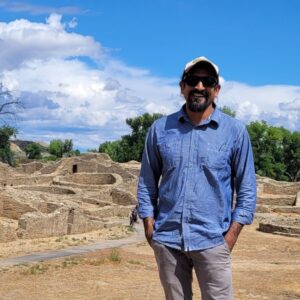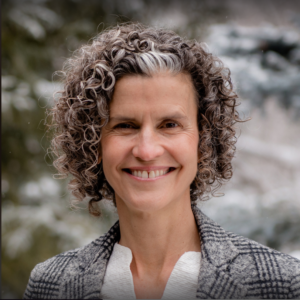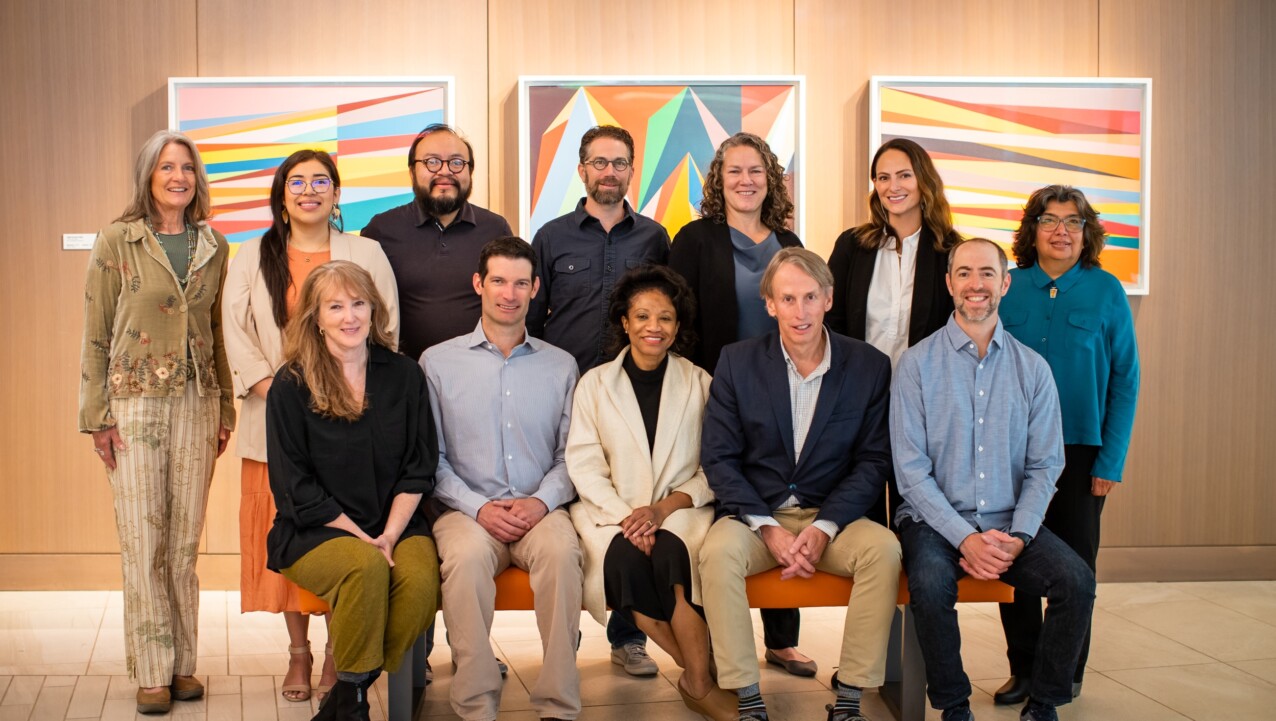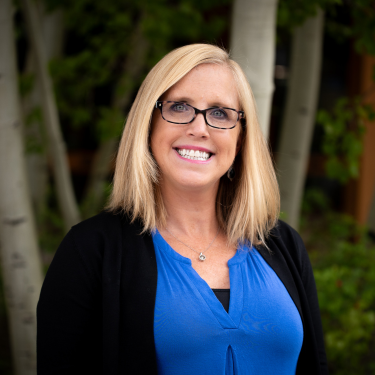November 7, 2023
This fall, WRA welcomed Chas Robles and Martha Records to our board of directors. Our board is one of our chief assets, providing exemplary leadership to further the mission of our organization. Board members guide our work fighting climate change and its impacts in the Interior West by helping govern the organization, raising support, and building our network of partners.
We’re so grateful to have Chas and Martha join this important body. They are already making WRA stronger by contributing their unique perspectives, skills, experiences, and resources to the board’s vital work.
As our new board members joined us, I reached out to them to learn more about what inspires them to fight climate change in the West. Keep reading for short interviews with each new member — and to find out more about how they’re planning to solve the West’s most pressing challenges with WRA!
Please welcome:

Chas Robles
Conservation Legacy/Ancestral Lands Program Director
Ancestral Lands Conservation Corps
Chas Robles is the Ancestral Lands Conservation Corps Director, a program nestled in the Southwest Conservation Corps (SCC). He began with SCC as a Field Supervisor in 2012, having previously spent over three years with other student conservation corps restoring and protecting ecosystems in the Mojave Desert, Mount Rainier National Park, and across Colorado. In 2015, Chas became the Ancestral Lands Program Director and helped lead its growth into a full-fledged corps program. He became the inaugural Ancestral Lands Conservation Corps Director in 2019. Chas enjoys biking on trails in the Bosque along the Rio Grande, getting to know New Mexico’s beautiful outdoor spaces, and searching for the perfect bowl of menudo.

Martha Records
Managing Director
Green Spark Ventures
Martha Records is a partner of Green Spark Ventures, an investment fund dedicated to deploying capital into strategies to address the climate crisis focusing on the clean energy, conservation, and regenerative agriculture sectors. She serves on the boards of Colorado Open Lands, and the Tuck School of Business Administration at Dartmouth. Martha earned a B.A. in International Relations from Stanford University and an M.B.A. from the Tuck School at Dartmouth.
What is your climate change connection? How have you been impacted?
Chas: The biggest impacts that I have seen from climate change are through my work with Ancestral Lands Conservation Corps and the Indigenous communities we partner with. Folks have shared that the rivers that they have relied upon to irrigate their crops since time immemorial are drying up. The growing seasons are shifting, and temperatures and weather are becoming more erratic with intense swings and extremes. The impacts of climate change also threaten sacred sites through erosion and accelerated weatherization and deterioration. One of the most direct personal impacts that I have seen from climate change is the Rio Grande drying up in Albuquerque for the past two years. This is the first time in forty years that the river has dried up in Albuquerque, threatening the flora, fauna, and farmers who rely upon the water.
Martha: I didn’t really focus on the magnitude of the threat of the climate crisis until about fifteen years ago. In the last few years, I have been most struck by how quickly the noticeable effects have materialized. The disruption to our communities and the natural world from warming temperatures, changing water cycles, more heat, fires and smoke, droughts and flooding is an onslaught–but it is also a renewed call to action.
What drew you to WRA?
Chas: I was drawn to the mission to fight climate change through WRA’s three priority areas of protecting land and improving habitat and access, protecting rivers and water, and advancing clean energy and reducing climate pollution. I look forward to learning more about WRA’s work, the positive impacts in the communities we serve, and the areas where we can deepen our impact.
Martha: I was drawn to the combination of WRA’s long-term thinking coupled with a laser-like focus on implementing effective climate policy at the state and local level. WRA has an outsized impact on climate policy in the US because of their effectiveness at the state level in the West.
What would you most like to see accomplished in climate advocacy in the next five years?
Chas: Centering frontline communities and ensuring that they are the ones creating the solutions. The communities who are most directly, and often disproportionately, impacted by climate change need to lead the efforts to mitigate it and ensure our communities are prepared to be resilient in the face of a changing climate.
Martha: I would like to see us meet our targets for emissions reductions.
What’s an item on your bucket list of things to do in the West?
Chas: I’ve never been to the Grand Canyon, and I would like to visit that space which holds so much significance to so many Indigenous cultures in the region.
Martha: I’ve been wanting to do the Mount Huron hike for a long time.
Board members represent our mission across the region and we are indebted to their commitment and service to our organization. I hope these interviews made you as excited about these new board members as I am. If you’d like to learn more, you can read their full bios here.



